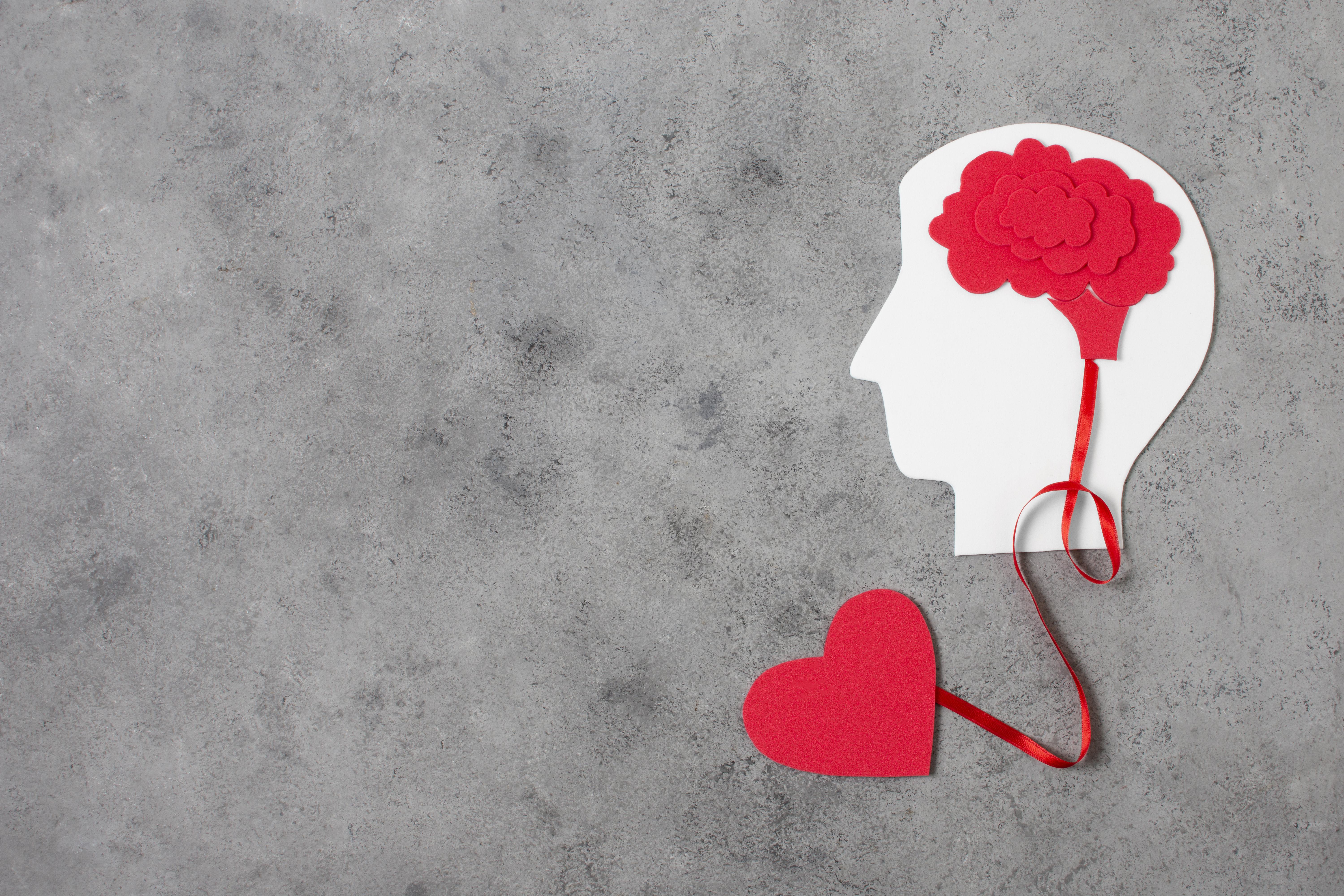Women's Mental Health Month 2024: A Time For Support & Awareness

Strong 8k brings an ultra-HD IPTV experience to your living room and your pocket.
Although every day should support Women’s Day, Women’s Mental Health Month 2024 is a great way to acknowledge women's strength and inner abilities and appreciate their emotional or psychological challenges. This blog will particularly focus on women’s gender based violence, social pressure, or shits in women’s hormones changes. Besides this, mental health is as important as physical health. Let's take a look at women’s unique challenges and how their mental health differs from men's.
Why Women’s Mental Health Month 2024 Matters:
Mental Health can affect anyone regardless of gender. But it can affect women differently. According to research, women are more likely to be depressed than men. They are more vulnerable to anxiety disorders. Besides this, on a day like this, women's mental health awareness is essential to celebrate women's health journey. This day will remind us of the difficulties and health issues women deal with courageously. It is important to understand and acknowledge their struggles. So, they don't feel as if they are all alone in their mental health journey.
Hormones Influence On Women’s Mental Health:
Hormones play a significant role in women's overall health and brain chemistry. The hormone imbalance can worsen the condition in a woman. For instance, the happy hormone dopamine and the stress hormone cortisol can badly impact women's mental health if they go unnoticed. Therefore, awareness is important to normalize these effects.
Menstruation & PMDD:
Hormone changes during menopause can affect women's moods. It causes psychological distress in women. Women have to go through their menstrual cycle every month. This lets us know about women's empowerment and the strength of dealing with it gracefully. However, PMDD, premenstrual dysphoria disorder, starts before menstruation. It causes severe pain that needs attention and treatment. However, it can affect women’s daily life functioning.
Pregnancy & Postpartum Periods:
Pregnancy can be a crucial stage for women’s mental health. Women are real heroes who give birth to new life. It can be unimaginable pain for women. Women naturally have a nurturing personality that gives them strength. However, fluctuations in pregnancy are abnormally normal. Women can relate to many disorders that are characterized by symptoms such as OCD. IT may bring fear to mother of losing their child. In addition to this, postpartum periods can start right after giving birth. Also, it can relate to postpartum depression, which can continue for many days after delivering the baby.
According to the research, 85% women suffer during postpartum periods. It can lead a woman to anxiety and depression. Further, it can be divided into three stages.
Perimenopause & Menopause:
Premenopause and menopause can be disturbed by hormones such as estrogen and progesterone. This can distress the person by affecting their brain chemistry. Further, it can bring physical and emotional changes in women. It can cause severe mood swings and memory shifts. Besides this, women can explore these fluctuations of hormones and changes that can lead them towards the healing process.
Common Mental Health Conditions Among Women:
Women have higher rates of triggering with anxiety due to hormone fluctuations. The societal pressure can create stress on them. Also, traditional gender roles can develop more responsibility, which can lead to stress. Therefore, mental health support for women brings awareness and creates a safe place for women to discuss their challenges openly and safely. Moreover, you can explore the following mental health conditions of a woman due to cultural, biological, or environmental factors.
Depression:
Depression is quite common in young women. It is a serious mental health disorder that can be caused by environmental or psychological factors. Women experience depression differently from men. They can get depressive symptoms with stressful events or societal pressure. However, women seek professional support and treatment for their mental well-being.
PTSD:
Women are likely to suffer from emotional difficulties. Women are supposed to get PTSD symptoms due to past abuse experienced in childhood. This can affect their daily life activities.
Anxiety Disorders:
Due to social, biological, or environmental factors, women can be more prone to anxiety disorders than men. Their high levels of hormones may lead them to develop anxiety and other mental health disorders.
Postmortem Depression:
Childbirth is a life-changing experience for women. Being a mother is a wonderful feeling. But if you are feeling sadness, worry, or stress along with it, it is a sign of post-traumatic stress disorder. It is often neglected by others due to illiteracy. However, you can find various treatments or strategies for women’s wellness and support.
Eating Disorder:
It has been shown that women are likely to be more concerned about their bodies than men. This can lead them to eating disorders. Further, it can cause physical or psychological side effects if it goes unnoticed or remains untreated at the right time. Besides this, women can suffer from anorexia, which is a psychological disorder. It can occur to girls or women regardless of their body size and shape.
The Impact Of Social Expectations:
A woman is an all-rounder. They are often expected to be everywhere. Therefore, Women's Mental Health Month 2024 is a reminder to celebrate women's sacrifices. Women can do wonders when it comes to duty. They can share every responsibility exceptionally, whether it's a mother, sister, daughter, nurse, or whatever role it is. Besides this, we put so much pressure on women to be perfect in every role. This will develop unrealistic expectations and guilt in women.
Barriers Women Face in Support Of Mental Health:
Women face various challenges that need attention and care. To recognize these barriers is the initial step to acknowledging the difficulties: the stigmas, taboos, and limited understanding of women's mental issues that need to be addressed.
Cultural Stigma:
Mental illness may be highlighted as a weakness in some cultures. It is perceived that a woman should seek spiritual help rather than professional help.
Lack Of Time:
Lack of awareness can be another important factor. Excessive responsibilities can lead them to worry. This can develop anxiety in them.
Fear Of Judgement:
Society has a great impact on our mental well-being. Women fear that they are being labelled as crazy and dramatic if they talk about their mental health condition.
Financial Limitation:
As women take on all household responsibilities. They have to take care of the finances. This can distress them and cause insomnia, hopelessness, and depression.
Effective Treatments & Therapy For Women’s Mental Health:
Treatments are tailored to each person's needs according to their lifestyles. You can discover the right approach that works for you.
Psychotherapy:
You can take effective therapy such as CBT and DBT. It is a highly effective approach to deal with your past traumas. They will examine your underlying trauma for the healing process.
Medication:
Medication also helps in reducing your symptoms. You can take anti-anxiety or antidepressants to get rid of stress symptoms. You need to take self-care before it gets too late. It might worsen the person's condition.
Celebrating Strength & Breaking Stigma:
Women's Mental Health Month 2024 is a great way to celebrate women's victories. It is not about gender; it is about a human. Let's honor together the resilience and emotional strength of a woman. Let's challenge those harmful stigmas that deprive a woman emotionally. Besides this, let's create a safe place for women for healing where they feel seen, heard, and supported.
FAQ
Q1: Why do women need specific gender health care?
Ans: Women do suffer from postpartum depression; therefore, they need treatment and support that is tailored to their requirements.
Q2: How do hormones affect women's mental health care?
Ans: Hormone fluctuations can distress women mentally and physically. This can worsen their condition if not treated at the right time.
Q3: How does trauma impact women's mental health?
Ans: Trauma can trigger PTSD, depression, and alter brain function.
Q4: How do we reduce stigma for women seeking help?
Ans: We can help them by creating awareness and promoting education to remove the taboo and stigma.
Note: IndiBlogHub features both user-submitted and editorial content. We do not verify third-party contributions. Read our Disclaimer and Privacy Policyfor details.




